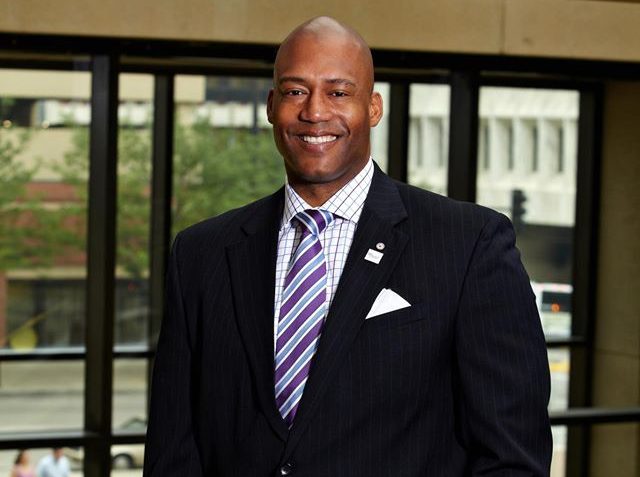Moving beyond the protests and demonstrations, the Douglas County Board of Health took a bold step on Wednesday, June 17, 2020 and declared racism as a public health crisis.
In the midst of a world-wide pandemic, national unrest and spirited debate regarding police brutality and excessive use of force, Douglas County is stepping up to lead the way to begin addressing racism head on.

(Commissioner Chris Rodgers, Chair of Douglas County Board of Health)
“We see this as a first step, an important, big and bold first step to educate the public, solve some immediate problems, but most importantly dismantle a structurally racist system and build a new anti racist system,” said Chris Rodgers, Douglas County Commissioner and Chair of the Board of Health.
Over the past few weeks major corporations have made public statements and some have pledged significant dollars to begin addressing systemic racism in the workplace and in the community. This move by the county shows that public entities are also preparing to fight the battle.
Over the years, protests have generated headlines and attracted major media coverage, but after the smoke clears the demands for change are typically met with small incremental progress or in some cases increased resistance and backlash. There are early signs that this time will be different.
The county resolution is just one example. Within the resolution, twenty two specific actions are identified. In order to make a real impact, each of the elements must be fully implemented.
“This provides a foundation to really begin addressing the issues directly,” said Rodgers.” It provides us a way to assess everything we are doing as it relates to race.”
Some of the components of the resolution include:
- Establishing and supporting an Office of Health Equity and Racial Justice
- Including in any decision making the people most affected by heath and economic challenges
- Advocate for relevant health policies to improve health in communities of color
- Commit to conduct all human resources, vendor selection and grant management activities with a racial equity lens
- Promote racially equitable economic and workforce development practices
- Establish alliances and secure adequate resources to successfully accomplish the above objectives
Just last year, the county in partnership with the Council for Racial Justice and Reconciliation Committee, commemorated the 100 year anniversary of the lynching of Will Brown. It was a memorable show of unity in the city as people of all races and ethnicities remembered the horrible lynching and burning of a Black man during the 1919 race riots, but leaders pledged to never let it happen again.
Participants also committed to working together to improve race relations and address long-term social, health and economic issues.
As the calendar turned to 2020, within three months the nation and world were dealing with the devastating COVID-19 pandemic. Through the impact of the Coronavirus, underlying health disparities and economic inequities have been exposed at an unprecedented level.
African-Americans and people of color are once again disproportionately diagnosed with cases and are dying at an alarming rate from the disease.
After years of research and work to improve health conditions and some targeted efforts to address the social determinants of health, county officials started along the path of officially recognizing what many in the black community have known forever, racism is having a devastating impact.

(Photo: Dr. Adi Pour)
“We have been tracking the health data since 2002 and there’s been very little progress and some measures are now worse than they were,” said Dr. Adi Pour, Director of the Douglas County Health Department.
“Coronavirus has further exposed health disparities, where 77 % of the COVID-19 cases in Douglas County impact the minority communities. It is time to address the underlying causes, i.e. the structural and institutional policies that have disadvantaged our minority communities. It’s time we work together.”
With the number of COVID 19 cases still escalating as the virus continues to spread and unrest locally and nationally persists regarding excessive use of force by the police, the county resolution and forthcoming actions should make a difference. To be effective, influential and impactful, the group must sustain the effort, reform policies and align investments to directly address the problem.
This is a big first step and should be recognized and celebrated. Now the real work begins.

(City Councilman Ben Gray, member of Douglas County Board of Health)
“There is a sense of urgency to finally do something about this,” said Ben Gray, City Councilman and member of the Douglas County Board of Health. “The city and county have the opportunity to reform and change these systems and structures. We must get it done this time.”
Click below to read the resolution and 22 action steps:
DC Resolution Declaring Racism a Public Health Crisis approved and recorded

